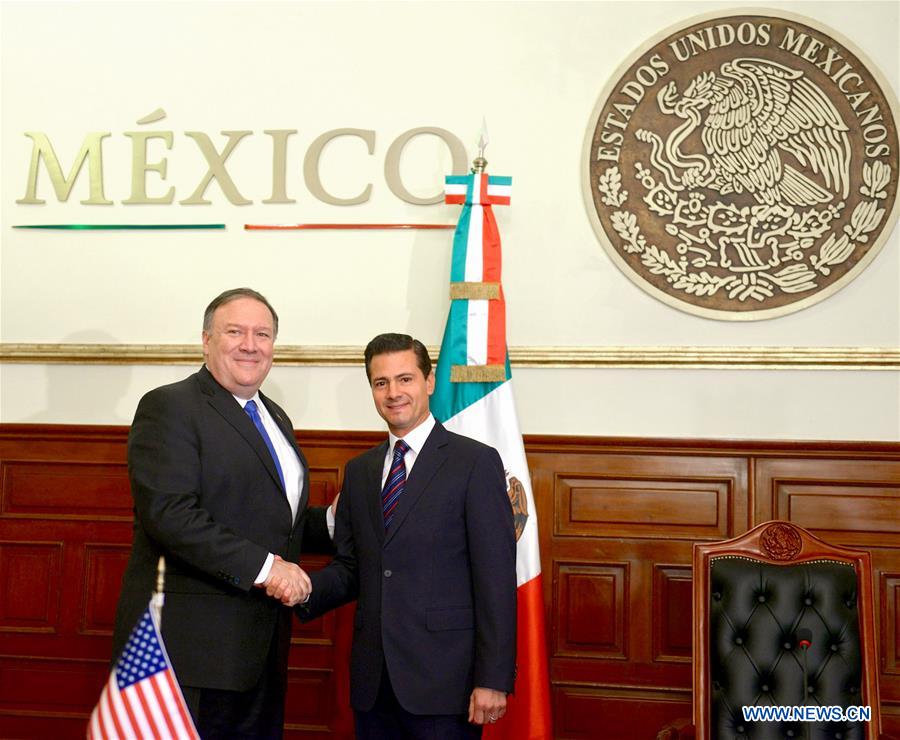
Photo provided by Mexico's Presidency shows sitting Mexican President Enrique Pena Nieto (R) shaking hands with U.S. Secretary of State Mike Pompeo during their meeting in Mexico City, capital of Mexico, on July 13, 2018. (Xinhua/Mexico's Presidency)
WASHINGTON, July 12 (Xinhua) -- U.S. Secretary of State Mike Pompeo, along with other top U.S. officials, will visit Mexico on Friday to discuss issues concerning bilateral ties, said the U.S. State Department on Thursday.
Pompeo was expected to meet with President-elect Andres Manuel Lopez Obrador, sitting President Enrique Pena Nieto and Foreign Secretary Luis Videgaray during his one-day trip, a senior State Department official told reporters at a background briefing.
The official, who spoke on the condition of anonymity, said that key issues for their talks will include curbing transnational crime, opioid epidemic and irregular immigration. Trade and border issues were also on the agenda.
The visit is also about the future relationship with the incoming government, said the official.
Pompeo will travel with a high-level U.S. delegation, including Senior Advisor to the President Jared Kushner, Secretary of Homeland Security Homeland Security Kirstjen Nielsen, and Secretary of the Treasury Steven Mnuchin.
Lopez Obrador, who had been informed of the visit of the U.S. delegation, said earlier this week that he really "appreciated the fact (that U.S. President Donald Trump) has decided to include the Treasury Secretary, because that shows he liked our proposal to cultivate our ties (based) on cooperation for development."
In a phone call with Trump last week, Lopez Obrador called for greater bilateral cooperation between the two neighboring countries.
Lopez Obrador, who won the presidential elections on July 1, will take office on December 1.
Bilateral ties have hit several rough spots since Trump took office in January 2017 with an agenda to erect a wall along the U.S.-Mexico border to keep out undocumented migrants, and to renegotiate trade ties that he believes have unfairly benefited Mexico over the past two decades.















